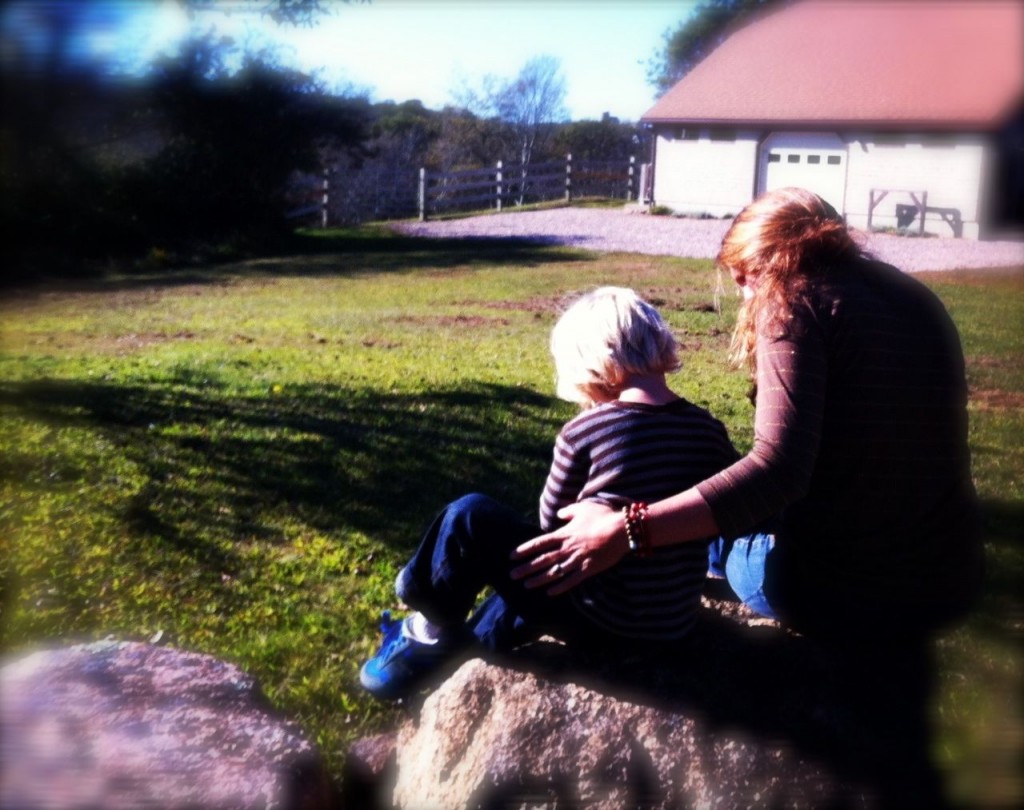by Linda Weatherseed
Talking with children about death is one of the hardest conversations a parent will ever have. After all, a parent’s primary instinct is to protect their children from suffering, and death is a scary subject, fraught with peril if misunderstood.
Parents frequently ask us how to explain the death of a family member to a young child. We tell them that it is very important to be as honest as possible, bearing in mind their child’s age. This is because a child’s ability to understand death depends very much upon his or her developmental stage. Preschoolers, for example, are unable to understand the finality of death. They believe that death is reversible and that the person who died can come back or can be visited.
One mother I recently worked with had an unusually difficult time trying to explain her husband’s sudden death to her five-year-old boy. She thought the news might go easier if she avoided using the word “died,” so she told him, “Daddy has gone to sleep.”
Naturally, being five, the child just assumed his father was taking a long nap and would wake up at some point to rejoin them. But, instead of soothing the child, this misinformation only served to create confusion and fear when Daddy didn’t come back. The little boy became fearful of sleeping, scared that he wouldn’t wake up, just like the story he’d been told about his father. He also feared losing his mom when she went to bed.
It’s normal for a death to disrupt a young child’s sense of security: they wonder, “Why did Daddy die? Who will take care of me if Mommy dies too?” And confusion about the nature and causes of death only makes matters worse. Regressive behavior becomes common. Preschoolers often revert to thumb sucking, bedwetting, separation anxiety and clinginess.
As a society, we are generally not good at talking about death. It’s a subject we try to avoid. Grief is a natural reaction to loss for children and adults alike, and within each of us is the capacity to heal. But we must remember that children grieve differently than adults do. Unlike adults who generally grieve intensely and for longer periods of time, children will fluctuate between sadness and play. Because children are not able to verbally express their feelings through words, their grief is often displayed during play. Parents might mistake this as a sign their child is not feeling any sadness, when in fact, they are.
Here are some general guidelines for explaining death to children:
- Tell the child about the death as soon as possible. Do not wait for “the right time.”
- It’s much better to tell the truth, and it’s okay to admit you don’t have all the answers.
- Create an environment that lets the child know they can talk about this any time — this is not a taboo topic.
- Answer questions over and over if needed.
- Avoid using euphemisms, such as the loved one “went on a trip” or “went to sleep,” etc. This will only confuse the child.
- Listen to questions closely and ask follow-up questions to make sure you understand what is being asked and why. Answer only what is being asked. Keep it simple and honest.
- Pay attention to body language. If the child is antsy, wait for another time when the child seems receptive. It’s better not to pressure or force a child to talk about their feelings. They will open up when ready.
- Maintain structure and routine.
- Reassure the child that you plan to always be there to look after them.
- Don’t discourage any questions or discussions of the deceased loved one. Instead, help the child form memories by encouraging them to talk about the person who’s gone.
- Don’t be afraid to let your child see you cry, but try not to lose control in your child’s presence.
- Give extra hugs.
Lastly, it’s never too late to remedy a bad situation. If you feel you’ve made a mistake in your explanation about death, do not hesitate to turn it around and be honest with your child. The mom who told her son that “Daddy has gone to sleep” found a counselor who helped her come up with the right words for her son. Parents should be the first educators about life and death for their little ones. Not TV. Not video games. Not fairy tales or other kids at school. And there are many excellent resources, including support groups and some wonderful illustrated books and magazines, to help children of all ages process their emotions regarding the death of a loved one. For a comprehensive list of resources, visit Centering.org.
Linda Weatherseed is the coordinator of The Den for Grieving Kids, a Family Centers program offering bereavement support to children and families living in Fairfield County, CT. For information, call 203-869-4848 or visit www.familycenters.org.
Tags: bereavement, dealing with death, explaining death to children







When an eight year old girl was hit by a car and died the childrens church director explained it in an excellent way. He brought a styrofoam cup and seed to church. He explained that like the seed goes into the ground and a beautiful flower emerges one daytheir fiend will emerge when Jesus comes to rapture us and we will see them again.